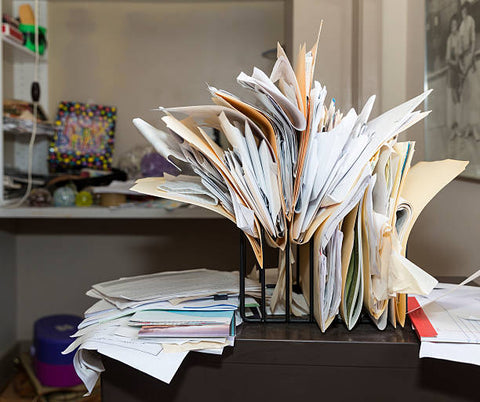As individuals, we often underestimate the significant impact that clutter in our homes can have on our overall well-being. From piles of papers to unused clothing and miscellaneous items scattered across countertops, clutter not only affects the physical appearance of our spaces but also induces stress that can have a negative impact on our daily lives. So why does clutter create stress? Let's explore.
Clutter in our surroundings tends to overwhelm us mentally. It bombards our minds with a constant reminder of unfinished tasks, incomplete projects, or unorganized belongings, leaving us feeling both physically and mentally drained. The visual chaos of clutter can create a sense of mental disarray, making it difficult to focus on essential activities or find peace of mind. This constant visual stimulation prevents our brains from truly relaxing and impairs our ability to concentrate, leading to increased stress levels.
Clutter also affects our productivity. When our living spaces are filled with unnecessary items, it becomes challenging to locate essential objects or accomplish everyday tasks efficiently. A cluttered environment leads to misplaced keys, wasted time, and delays in productivity, causing frustration and adding unnecessary stress to our lives. Imagine waking up in the morning and spending valuable time searching for misplaced car keys or important documents due to a cluttered mess. The frustration and stress that follows can set a chaotic tone for the entire day.
Clutter can evoke feelings of guilt or embarrassment as well. When our homes are disorganized, we may experience shame or guilt for not being able to uphold a neat and tidy living environment. Consider this: when we anticipate guests, we diligently clean, clean, clean! Additionally, imagine the satisfaction we feel when the cleaning is finally finished. Now, visualize someone unexpectedly dropping by while your house is a chaotic mess. You understand the impact it can have.
In addition to the mental and emotional impact, clutter also affects our physical health. A disorganized living space makes cleaning and maintaining a healthy living environment more challenging. Dust, allergens, and mold can accumulate in neglected cluttered areas, posing health risks such as allergies, respiratory issues, and even more severe problems. In this way, clutter can lead to further distress by compromising our physical well-being.
So I guess we can conclude that decluttering your living space can declutter your head space. By acknowledging and addressing the clutter in our homes, we can create a more harmonious, stress-free living space that promotes our overall well-being.
Article By: Heather Campa, Wyoming Wildflower



